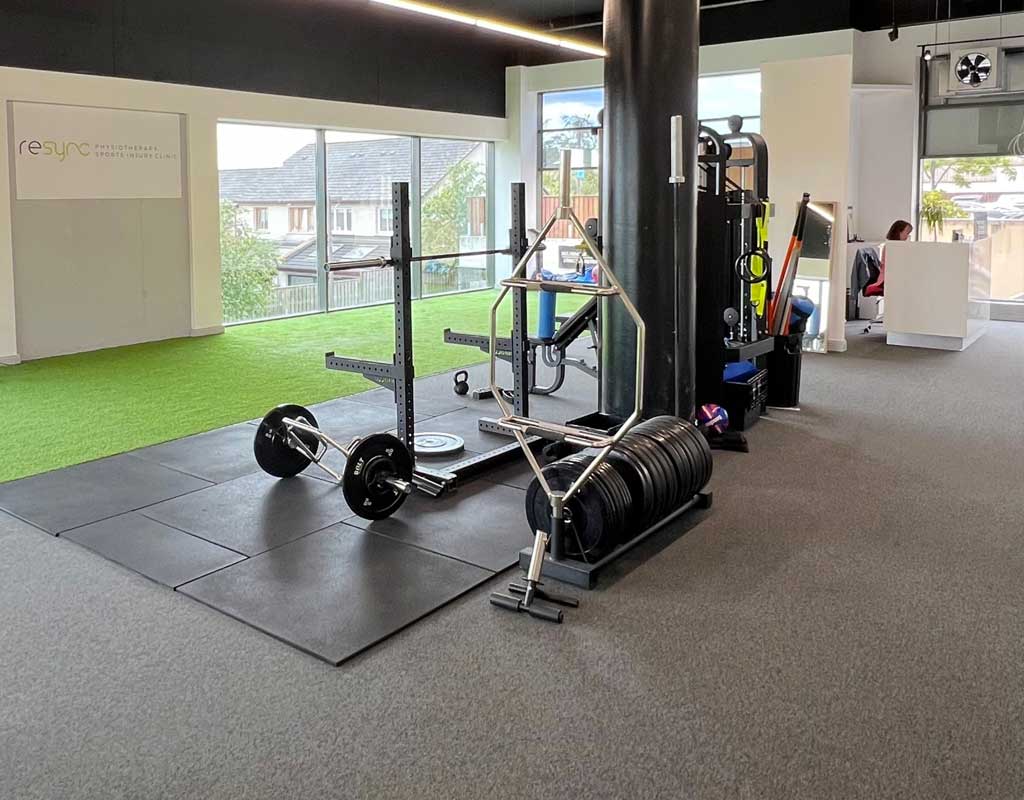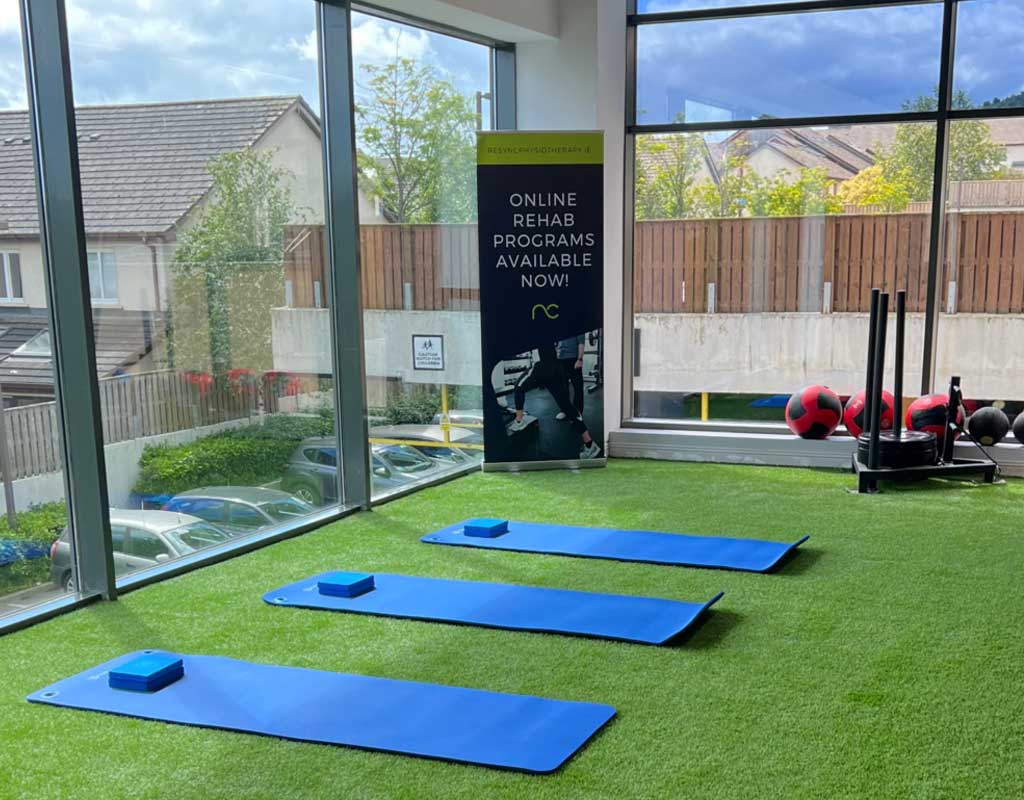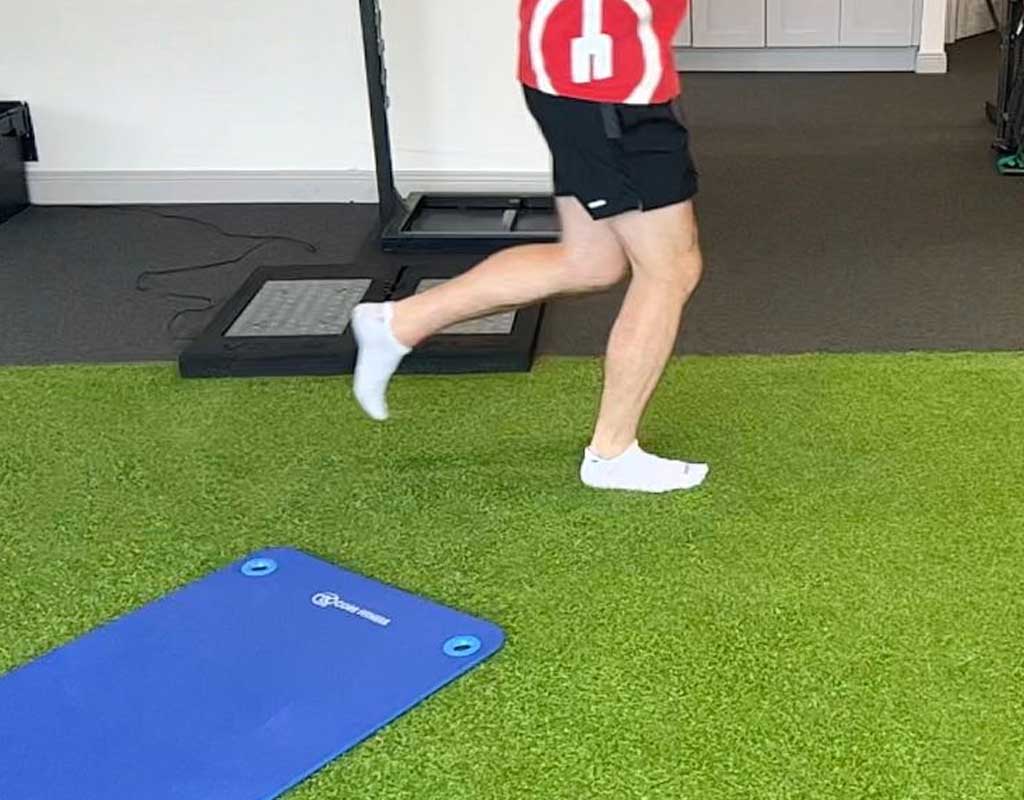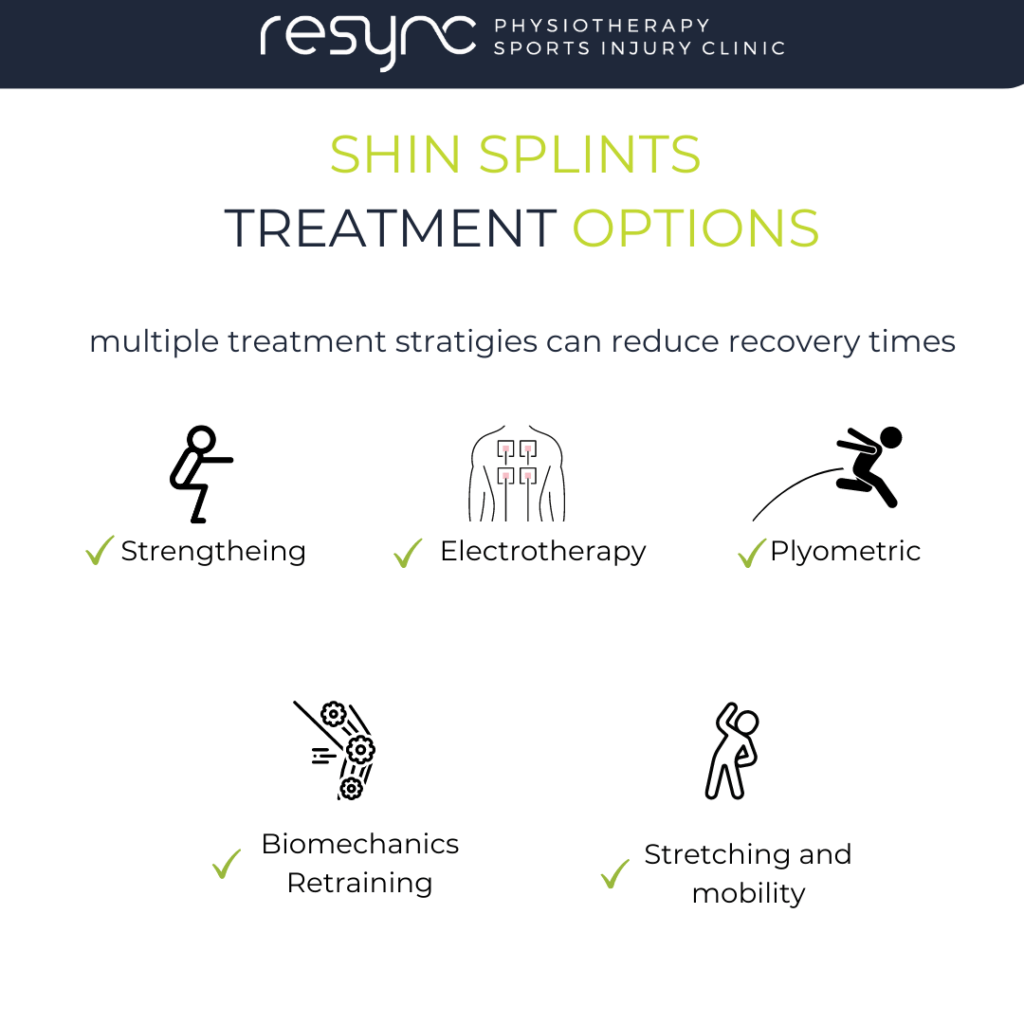Are you struggling with an injury and looking for a way to bounce back? Look no further than the skilled and experienced physiotherapists in Dublin. With their expert knowledge and personalized approach, they can help guide you from injury to recovery, ensuring you get back to feeling your best.
Whether you’re a professional athlete or someone recovering from a work-related injury, physiotherapy can play a significant role in your rehabilitation journey. These dedicated professionals understand the unique needs of each individual and tailor their treatments accordingly.
From manual therapy to exercise programs, physiotherapists in Dublin offer a wide range of services to address various conditions and injuries. They not only focus on healing the immediate injury but also aim to prevent future injuries by improving strength, flexibility, and overall mobility.
With extensive experience in treating sports injuries, back pain, post-surgical recovery, and chronic conditions, physiotherapists provide evidence-based treatments that can accelerate your recovery process. So, if you’re determined to get back on your feet, reach out to a physiotherapist in Dublin and start your journey towards a full and healthy recovery today.

Understanding physiotherapy and its role in injury recovery
Physiotherapy is a branch of healthcare that focuses on diagnosing and treating injuries, disabilities, and disorders through physical methods such as manual therapy, exercise, and rehabilitation techniques. It aims to restore and maximize the body’s movement, function, and overall well-being.
Physiotherapists in Dublin are highly trained healthcare professionals who have an in-depth understanding of the musculoskeletal system and how it relates to movement and function. They use their knowledge and skills to assess, diagnose, and treat a wide range of conditions and injuries.
The primary goal of physiotherapy in injury recovery is to reduce pain, promote healing, restore function, and prevent further injury. Physiotherapists employ a holistic approach, considering not only the injury itself but also the individual’s overall health, lifestyle, and goals.
Physiotherapy treatments may include a combination of manual therapy, exercise prescription, electrotherapy, and education. The specific techniques used will depend on the nature and severity of the injury, as well as the individual’s unique circumstances.

Benefits of seeking professional physiotherapy in Dublin
Seeking professional physiotherapy in Dublin offers numerous benefits for individuals recovering from injuries. One of the main advantages is the expertise and knowledge that physiotherapists bring to the table.
Physiotherapists undergo extensive education and training, allowing them to accurately assess and diagnose injuries. They can design personalized treatment plans tailored to the individual’s specific needs, ensuring the most effective and efficient recovery process.
Additionally, physiotherapists have access to a wide range of treatment modalities and techniques. They stay up to date with the latest research and advancements in the field, allowing them to provide evidence-based care that is both safe and effective.
Another benefit of professional physiotherapy is the ongoing support and guidance provided throughout the recovery journey. Physiotherapists not only provide hands-on treatment but also educate individuals on injury prevention, self-management strategies, and exercises they can continue at home.
Common injuries treated by physiotherapists
Physiotherapists in Dublin are equipped to treat a wide range of injuries and conditions. Whether it’s a sports-related injury, a workplace accident, or a chronic condition, physiotherapy can play a crucial role in the recovery process.
Sports injuries are a common reason individuals seek physiotherapy. Physiotherapists work closely with athletes of all levels, from recreational to professional, helping them recover from sprains, strains, fractures, and other sports-related injuries. They focus on reducing pain, restoring strength and flexibility, and facilitating a safe return to sports activities.
Back pain is another prevalent condition that can greatly benefit from physiotherapy. Physiotherapists assess the underlying causes of back pain, which can range from muscle imbalances to spinal conditions. They then develop targeted treatment plans that may include manual therapy, therapeutic exercises, and postural education to alleviate pain and improve function.
Post-surgical recovery is also an area where physiotherapy excels. Whether it’s a joint replacement, ligament repair, or spinal surgery, physiotherapists work closely with individuals to regain strength, mobility, and independence after surgery. They provide guidance on safe movement, scar tissue management, and exercises that promote healing.
Chronic conditions such as arthritis, fibromyalgia, and neurological disorders can also benefit from physiotherapy. Physiotherapists develop individualized treatment plans that focus on managing symptoms, improving function, and enhancing overall quality of life.
The role of a physiotherapist in the recovery process
Physiotherapists play a crucial role in the recovery process by providing comprehensive care and support to individuals with injuries. They act as primary healthcare providers, assessing, diagnosing, and treating injuries, as well as referring individuals to other healthcare professionals when necessary.
The first step in the recovery process is the initial assessment, where the physiotherapist gathers information about the injury, medical history, and individual’s goals. They perform physical examinations, assess range of motion, strength, and flexibility, and identify any underlying issues that may contribute to the injury.
Based on the assessment findings, the physiotherapist develops a personalized treatment plan. This plan may include a combination of hands-on manual therapy techniques, therapeutic exercises, and other modalities to address pain, inflammation, and muscle imbalances.
Throughout the recovery process, physiotherapists closely monitor progress and make adjustments to the treatment plan as needed. They provide ongoing education and support, ensuring individuals understand the nature of their injury and the steps required for a successful recovery.
Developing a personalized treatment plan with a physiotherapist
One of the key advantages of seeking physiotherapy in Dublin is the personalized treatment plans that physiotherapists develop for each individual. These plans take into account the individual’s specific injury, needs, goals, and lifestyle.
During the initial assessment, the physiotherapist will gather information about the injury, including the mechanism of injury, the individual’s level of pain and functional limitations, and any previous treatment attempts. They will also assess the individual’s overall health, including factors such as age, fitness level, and medical history.
Based on this information, the physiotherapist will design a treatment plan that addresses the unique needs of the individual. This plan may include a combination of manual therapy techniques, such as joint mobilizations or soft tissue release, to address pain and promote healing.
Therapeutic exercises are an essential component of any physiotherapy treatment plan. These exercises are designed to improve strength, flexibility, and overall function, and may be tailored to the individual’s specific goals and activities. The physiotherapist will guide the individual through these exercises, ensuring proper form and technique to maximize benefits and prevent further injury.
In addition to manual therapy and exercises, the physiotherapist may utilize other modalities such as electrotherapy, heat or cold therapy, or taping techniques to aid in the recovery process. These modalities can help reduce pain, inflammation, and swelling, and promote tissue healing.
Throughout the treatment process, the physiotherapist will continuously assess and reassess the individual’s progress. They will modify the treatment plan as necessary to ensure optimal outcomes and address any new challenges that arise.

Techniques and modalities used in physiotherapy for injury recovery
Physiotherapy utilizes a wide range of techniques and modalities to aid in injury recovery. These techniques may vary depending on the nature of the injury, the individual’s goals, and the physiotherapist’s expertise. Here are some commonly used techniques and modalities in physiotherapy:
1. Manual therapy: This includes hands-on techniques such as joint mobilizations, soft tissue mobilizations, and manipulations. Manual therapy aims to reduce pain, improve joint mobility, and restore normal movement patterns.
2. Therapeutic exercises: These exercises are designed to improve strength, flexibility, and overall function. They may include stretching, strengthening, and stability exercises that target specific muscle groups or movement patterns.
3. Electrotherapy: This involves the use of electrical devices to deliver therapeutic currents to the body. Electrotherapy can help reduce pain, decrease muscle spasms, and promote tissue healing.
4. Heat or cold therapy: Heat therapy involves the use of heat packs or warm water to increase blood flow and relax muscles. Cold therapy, on the other hand, uses ice packs or cold compresses to reduce inflammation and swelling.
5. Taping techniques: Taping techniques, such as kinesiology tape or rigid tape, can provide support to injured joints or muscles. They can also help reduce pain and improve proprioception.
6. Ultrasound therapy: Ultrasound therapy uses sound waves to provide deep tissue heating, promoting tissue healing and reducing pain and inflammation.
The specific techniques and modalities used will depend on the individual’s injury, goals, and the physiotherapist’s expertise. Physiotherapists in Dublin have a wide range of tools at their disposal and will tailor the treatment plan to meet the individual’s unique needs.
Tips for maximising your recovery with physiotherapy
While physiotherapy is an effective tool for injury recovery, there are steps individuals can take to maximize their recovery process. Here are some tips to get the most out of your physiotherapy sessions:
1. Follow your physiotherapist’s instructions: It’s crucial to follow the treatment plan and instructions provided by your physiotherapist. This includes completing any assigned exercises or home programs and attending scheduled appointments.
2. Communicate openly with your physiotherapist: Be open and honest about your symptoms, progress, and any concerns you may have. Your physiotherapist can adjust the treatment plan as needed and provide additional guidance or support.
3. Stay consistent with your exercises: Consistency is key when it comes to physiotherapy exercises. Make sure to perform them as prescribed and aim for regularity to see the best results.
4. Take care of your overall health: Good nutrition, hydration, and sleep are essential for optimal recovery. Take care of your overall health and well-being to support the healing process.
5. Avoid overexertion or pushing through pain: While it’s important to challenge yourself during physiotherapy, it’s equally important to listen to your body. Avoid overexertion and don’t push through pain that exceeds your comfort level. Communicate any concerns to your physiotherapist.
6. Maintain a positive mindset: Recovery can be a challenging process, but maintaining a positive mindset can make a significant difference. Stay focused on your goals and celebrate small victories along the way.
By following these tips and working closely with your physiotherapist, you can maximize your recovery and get back to feeling your best as quickly as possible.

Finding the right physiotherapist in Dublin
Finding the right physiotherapist in Dublin is crucial for a successful recovery journey. Here are some factors to consider when choosing a physiotherapist:
1. Qualifications and experience: Ensure that the physiotherapist is qualified and registered with the appropriate governing body. Look for experience in treating your specific condition or injury.
2. Specializations: Some physiotherapists have specialized training in areas such as sports injuries, post-surgical recovery, or chronic conditions. Consider whether their specialized expertise aligns with your needs.
3. Location and accessibility: Choose a physiotherapy clinic that is conveniently located and easily accessible. Consider factors such as parking availability and public transportation options.
4. Availability and scheduling: Check the availability of the physiotherapist and whether their schedule aligns with yours. Consider factors such as appointment length and flexibility.
5. Reviews and testimonials: Read reviews and testimonials from previous clients to get an idea of their experience with the physiotherapist. This can provide valuable insights into the quality of care and outcomes.
6. Communication and rapport: It’s important to feel comfortable and have good communication with your physiotherapist. Choose someone who listens to your concerns, explains treatment options clearly, and involves you in the decision-making process.
By considering these factors and doing some research, you can find a physiotherapist in Dublin who is well-suited to meet your needs and guide you on your journey to recovery.
Testimonials and success stories of individuals who have benefited from physiotherapy in Dublin
Physiotherapy has helped countless individuals in Dublin recover from injuries and improve their quality of life. Here are some testimonials and success stories from individuals who have benefited from physiotherapy:
“After suffering a severe ankle sprain during a soccer game, I was devastated and worried about my recovery. Thanks to the expertise and guidance of my physiotherapist, I was able to regain strength, stability, and confidence in my ankle. I’m now back on the field, playing at my best.” – John D.
“Living with chronic back pain was taking a toll on my daily life. Physiotherapy not only provided relief from the pain but also gave me the tools to manage my condition long-term. I’m now able to enjoy activities I once thought were impossible.” – Sarah M.
“I underwent knee surgery, and my physiotherapist played a vital role in my recovery. Their personalized treatment plan helped me regain mobility and strength in my knee, allowing me to return to my active lifestyle. I can’t thank them enough for their expertise and support.” – Mark S.
These testimonials highlight the transformative impact that physiotherapy can have on individuals’ lives. If you’re struggling with an injury or condition, reach out to a physiotherapist in Dublin and start your journey towards a full and healthy recovery today.
Conclusion: Taking the first step towards recovery with physiotherapy in Dublin
From injury to recovery, physiotherapists in Dublin can help guide and support you through the rehabilitation process. With their expert knowledge, personalized approach, and evidence-based treatments, they can help you bounce back from injuries, chronic conditions, or post-surgical recovery.
By understanding the role of physiotherapy in injury recovery, seeking professional physiotherapy in Dublin, and working closely with a physiotherapist, you can maximize your recovery and get back to feeling your best. Take the first step towards recovery by reaching out to a physiotherapist in Dublin and embarking on your journey to a full and healthy life.


